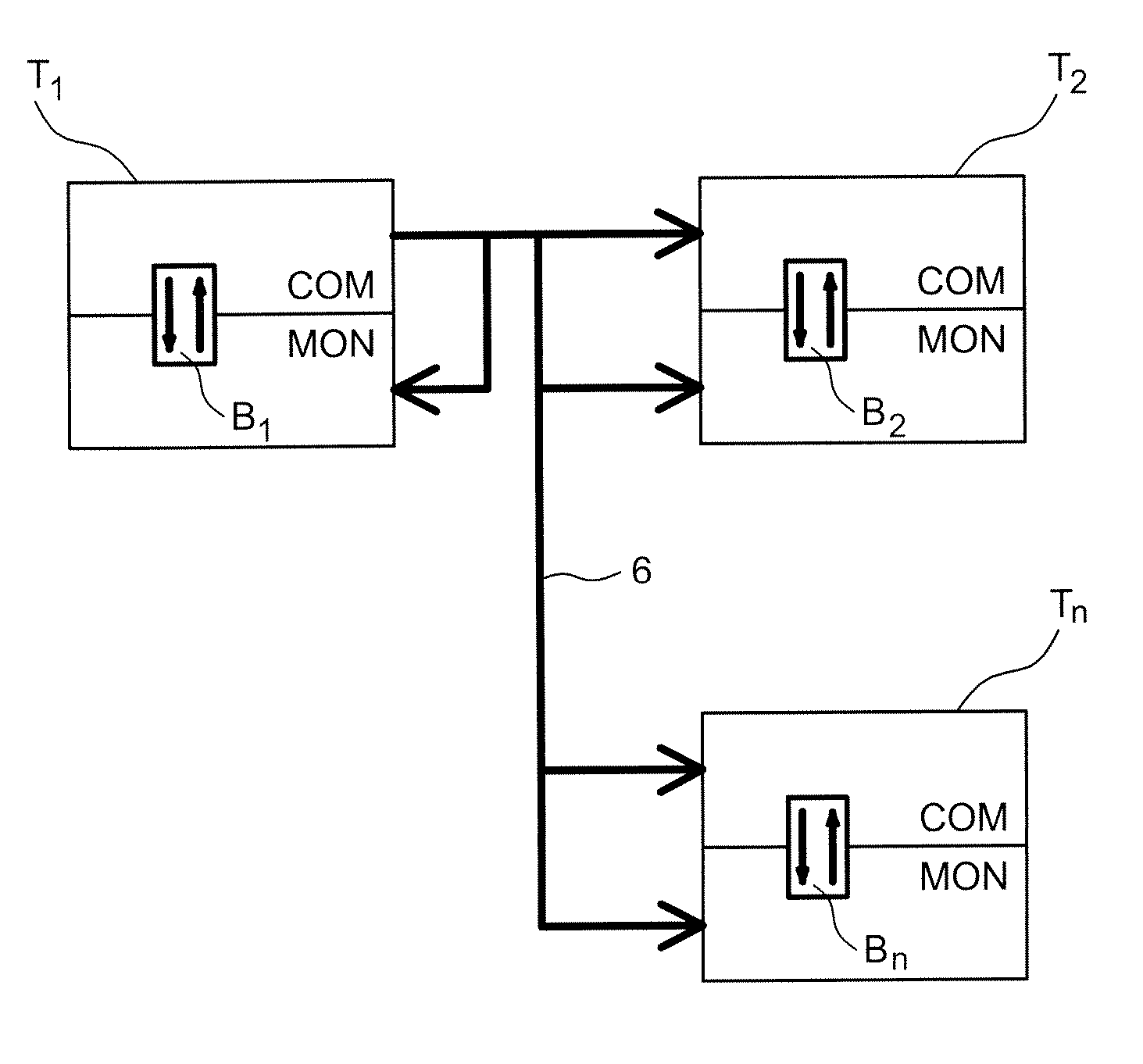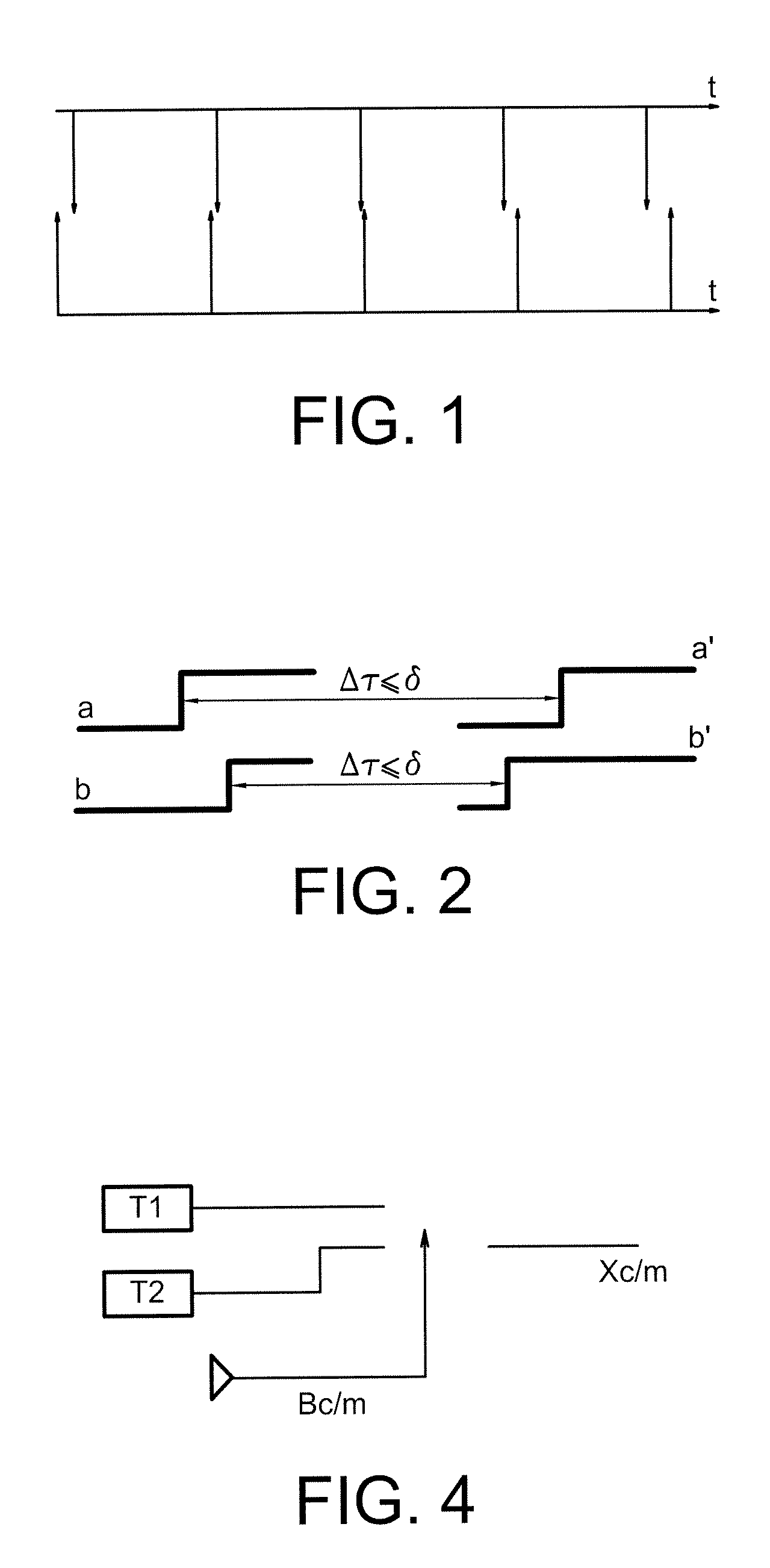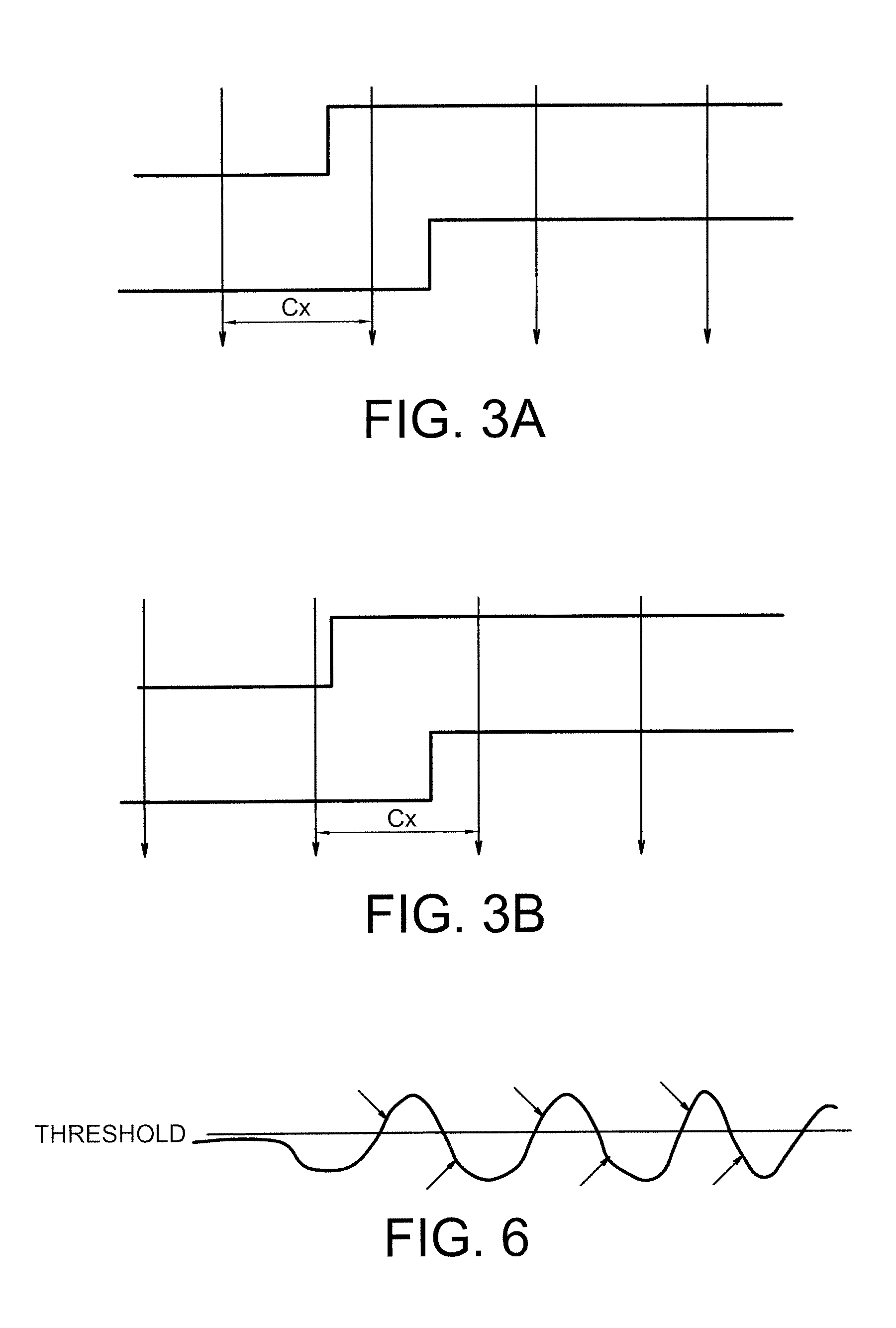Method and device for consolidation by software synchronisation in flight control computers
- Summary
- Abstract
- Description
- Claims
- Application Information
AI Technical Summary
Benefits of technology
Problems solved by technology
Method used
Image
Examples
Embodiment Construction
[0052] According to the invention, to equalise the sampled Boolean signals, two associated units in a computer of a computation system reach a consensus on a common value, based on the local value of each unit and the value received by the associated unit via the communication bus.
[0053] This common value is derived from a local synchronisation computation. At a given time, each unit has a pair of values: [0054] Bown, which is the local Boolean value; [0055] Bopp, which is the value received from the opposite (associated) unit, but which is not always the local Boolean of the other unit.
[0056] The consolidation computation is performed on this pair of Booleans and generates a Bcc Boolean value (for Boolean consolidated in COM) and a Bmc value (for Boolean consolidated in MON).
[0057] The two consolidated signals (Bcc and Bmc) are the closest possible.
[0058] The invention also relates to a method for synchronising two asynchronous units, for control and monitoring, respectively, o...
PUM
 Login to View More
Login to View More Abstract
Description
Claims
Application Information
 Login to View More
Login to View More - R&D
- Intellectual Property
- Life Sciences
- Materials
- Tech Scout
- Unparalleled Data Quality
- Higher Quality Content
- 60% Fewer Hallucinations
Browse by: Latest US Patents, China's latest patents, Technical Efficacy Thesaurus, Application Domain, Technology Topic, Popular Technical Reports.
© 2025 PatSnap. All rights reserved.Legal|Privacy policy|Modern Slavery Act Transparency Statement|Sitemap|About US| Contact US: help@patsnap.com



